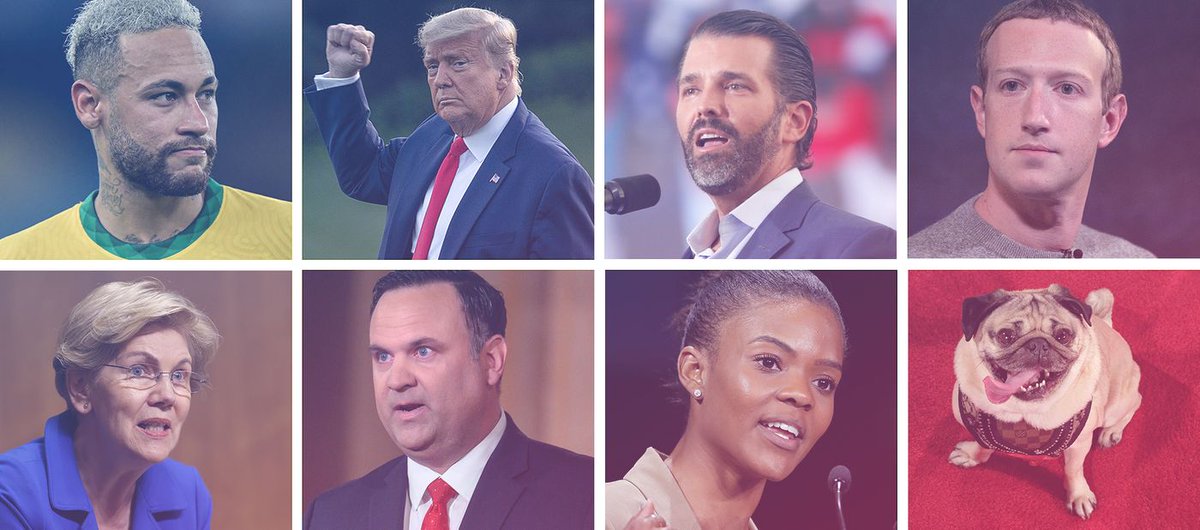Today’s bombshell report in @WSJ [@JeffHorwitz] that Facebook allowed at least 5.8m VIP users to be exempt from its TOS enforcement is yet another example of Facebook’s complete failure to responsibly moderate content or oversee its own platforms. /1
wsj.com/articles/faceb…
wsj.com/articles/faceb…
The WSJ reporting outlines how Facebook "whitelists" or gives preferential treatment to VIP Facebook users making them (at times) exempt to immune from standard content moderation practices and terms of service guidelines. The list of VIP users is called "XCheck." /2 

Those whitelisted included political figures such as the former President and his son, Candace Owens, Senator Elizabeth Warren, as well as athletes like Neymar and Mark Zuckerberg himself. /3 



WSJ: Neymar was allowed to post "revenge porn" on his Facebook account after a woman accused him of rape. Facebook content moderators were blocked from intervening and the post racked up 56 million views before it was taken down. Neymar's account faced no consequences. /4 

In June 2020, Trump's "looting and shooting" Facebook post that company executives decided to leave up was judged to have scored a 90 out of 100, "indicating a high likelihood it violated the platform’s rules." /5 

One major issue: Government officials, typically incumbents, who enjoyed "XCheck" status were exempt from certain Facebook moderation standards while their challengers (non-incumbents) were not whitelisted. It grants incumbents an advantage. /6 

The report also outlines how simple it was for employees to add to the XCheck list with little reason. Eligibility qualifications for the list included users who might be a "PR risk" to the company and were given preferential treatment simply because they were that. /7 

Worse yet, Facebook knew that the XCheck system was problematic for the company. It posed legal, compliance, and legitimacy risks according to a 2019 internal audit. Yet the XCheck list continued to be used through the 2020 election. /8 

Facebook also misled its own Oversight Board over its enforcement systems showing exactly how ineffective the body is. If it can't be expected to be honest with its own Oversight Board, what's the point of the Oversight Board and how can the public trust it? /9 

This weak statement from the Oversight Board does not outline any steps to show how Facebook is going to win the trust of the Oversight Board nor how the Oversight Board is actually going to finally provide adequate oversight over Facebook. /10
https://twitter.com/OversightBoard/status/1437434013153640455?s=20
This story demonstrates that the only thing to get Facebook even recognize problems is public pressure. That's why RFOB was formed and that's why we are shining a light on @JeffHorwitz's fantastic reporting. The company simply doesn't respond to anything else. /11
It began with Cambridge Analytica, it was apparent in the former President's "looting and shooting" post, it's clear with Facebook's treatment of NYU researchers, it is exemplified in its lack of action during Jan 6th, and it's brought us to this WSJ report. Public pressure. /12
• • •
Missing some Tweet in this thread? You can try to
force a refresh














